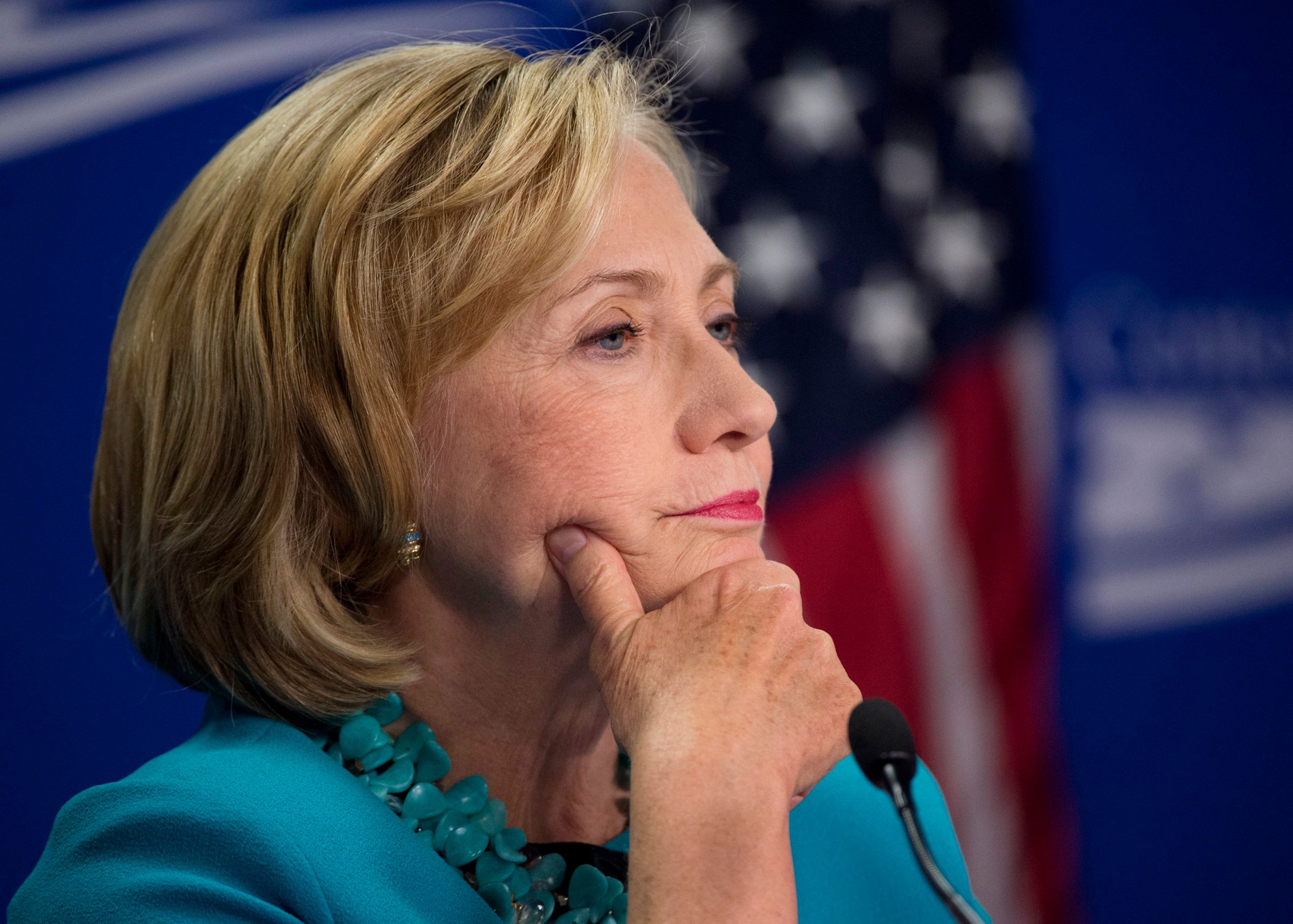
Buried in the 10,000 pages of documents released by the Clinton Presidential Library Friday is one bearing the customized stamp “Document Produced To Independent Counsel.”
Created to help track the untold number of documents produced for independent counsel Ken Starr’s investigations of the Clintons, the stamp is a totem of the problem that has dogged Hillary Clinton since she ran for the U.S. Senate in 2000: her history.
The Library made the documents available Friday, completing the release of 30,000 pages of previously restricted White House records on everything from the failed HillaryCare push to the Monica Lewinsky scandal. Those controversies generated internal debates and gotcha-moments now bearing out 14 years after the former First Lady and her husband vacated the White House, complicating her bid to be a repeat occupant.
Deliberations over Supreme Court appointments, controversial pardons, and meetings with foreign leaders are bared for the world to see. Even personal feuds, like that between the former president and former Arkansas Gov. Mike Huckabee, are on display in the margins of official documents and notes to staff. To read the document trove is to reenter a White House at the center of political and personal maelstroms.
The stamped memo captures the mid-1990s Clinton White House at a peak of high drama. Written by Deputy White House Counsel Bruce Lindsay to prepare President Bill Clinton for an interview on the Whitewater scandals, it strikes a familiar chord for those who view the former president as deceptive and those who view him as unfairly besieged by enemies. “NOTE: Of course, it is strongly recommended that you not answer specific factual questions about Whitewater, using the appointment of a special counsel as a legitimate way to deflect questions.”
Other documents reveal Hillary Clinton’s distaste for the press, her staff’s attempts to crack down on internal leaks, and the influence of donors in the White House. Ultimately, the documents, with an audience of Washington politicos, appear neither good nor bad for Clinton as she moves towards a run for the White House in 2016. Many simply reveal another perspective of issues well-covered twenty years ago. As much as anything else does, they simply define who she is and where she’s come from, even as she contemplates a new chapter in her life.
Conventional wisdom holds that longtime Senators with equally long voting records have a harder time running for the White House than governors do, a problem that Clinton has on steroids. Unending media interest in her and her husband, a sped-up news cycle, and the country’s increasingly short attention span have made even old news of interest as Clinton looks to 2016. Republicans will try to use these documents to revive the “Clinton Fatigue” that plagued the couple’s last years in office and cast a tall shadow over her failed 2008 presidential bid.
But Clinton will benefit some, too. The documents are proof of her intimate involvement in nearly every aspect of professional Washington for more than two decades. They show the Clintons and their aides tangling with complicated policy challenges, and reveal them slowly developing skills to manage the national media amid scandal.
Ultimately, the greatest challenge Clinton faces in the documents may not be answering for past political maneuvers or the snide remarks of aides, but finding a way to simply leave the past behind.
More Must-Reads from TIME
- Donald Trump Is TIME's 2024 Person of the Year
- Why We Chose Trump as Person of the Year
- Is Intermittent Fasting Good or Bad for You?
- The 100 Must-Read Books of 2024
- The 20 Best Christmas TV Episodes
- Column: If Optimism Feels Ridiculous Now, Try Hope
- The Future of Climate Action Is Trade Policy
- Merle Bombardieri Is Helping People Make the Baby Decision
Contact us at letters@time.com